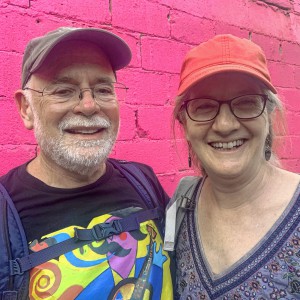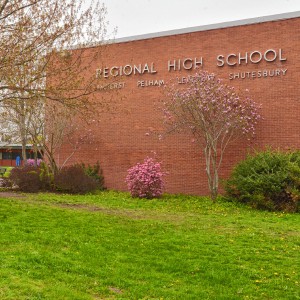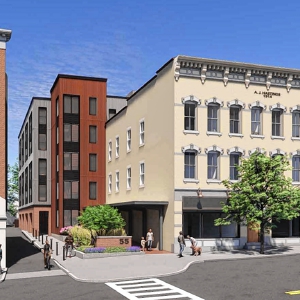Guest columnist Terence Masterson: Suggestions to grow affordable housing
| Published: 06-01-2023 6:37 PM |
Housing creation is a very costly issue that deserves the same level of subsidy we see in transit, roads, education and health care.
GM Chairman Alfred Sloan famously said that GM made cars for “every purse and purpose.” Our housing creation policies should be the same for all, whether it be for those who are homeless, evicted, foreclosed, laid off, elderly, disabled, or emotionally challenged. The Veterans Administration notes that there are 38,000 homeless veterans in the U.S. All deserve our prayers and top priority solutions. These suggestions are as follows:
In-depth personal financial skills should be taught all along the educational ladder of life so that people of all ages can make the best financial decisions with the limited incomes and benefits they will have. Many states are starting to mandate detailed interactive curricula. Utah offers credit courses and Florida recently passed mandatory courses. Massachusetts should join this movement. The American Public Education Foundation reports that only 16% of those under age 26 are optimistic about their financial futures.
Institutional research and advocacy has played a successful role in advancing positive public policy outcomes. The NYU Brennan Center advances election reforms while the UMass SEIGMA Center analyzes the social impacts of gambling. Housing advocacy deserves a central think tank to deliver many services such as publicizing successful housing solutions, debunking entrenched objections to affordable housing, mediating NIMBYism, working with local homeowners associations, lobbying local/ state public officials, and informing the news media regularly.
Municipalities treat housing differently. In March, the Hadley Zoning Board of Appeals turned down a 51-room hotel conversion to affordable housing, while in May the City Council in Williamsburg, Virginia unanimously approved a 76-unit hotel conversion. Gov. Maura Healey’s creation of a standalone cabinet-level housing office is a very positive measure and can deliver the top priority focus that housing deserves.
Eviction and foreclosure cause enormous damage to families, children, and those in vulnerable circumstances. Transitional housing is limited, if not nonexistent and more expensive. Our private and public sector economy handles catastrophic events and revenue disruptions with many financial safeguards such as insurance, reinsurance, shared risk pools, rainy day funds, deferrals and forbearance. Eviction and foreclosure should receive the same attention.
Perhaps both can be delayed or averted using such means. And such safety net solutions can be funded with the shared participation of tenants, landlords, mortgage holders and the commonwealth. No one should lose their long-term residence because of a short-term financial disruption.
Condominium and cooperative residential ownership can create occupancy that is less costly than rent payments, is more eviction resistant than rental housing, and builds individual savings and equity at a time when incomes and savings are low.
Article continues after...
Yesterday's Most Read Articles
 ‘Our hearts were shattered’: Moved by their work in Mexico soup kitchen, Northampton couple takes action
‘Our hearts were shattered’: Moved by their work in Mexico soup kitchen, Northampton couple takes action
 Springfield man charged with murder in Holyoke stabbing
Springfield man charged with murder in Holyoke stabbing
 Amherst-Pelham schools look to address school absences with new plan
Amherst-Pelham schools look to address school absences with new plan
 Two men dump milk, orange juice over themselves at Amherst convenience store
Two men dump milk, orange juice over themselves at Amherst convenience store
 Next 5-story building cleared to rise in downtown Amherst
Next 5-story building cleared to rise in downtown Amherst
 Three Amherst Regional Middle School counselors absolved of Title IX offenses
Three Amherst Regional Middle School counselors absolved of Title IX offenses
HUD Secretary Jack Kemp preached the aspirational value of residential ownership as a route to growing personal savings and economic equity. The Westchester Builders Institute recently reported that a cooperative unit is 75% cheaper and a condo unit is 50% cheaper than a Westchester County home. There is a long history of cooperative ownership since the 1950s, when New York City financed the construction of the Mitchell Lama and Co-Op City developments.
Public and nonprofit housing agencies currently operate rental properties. Perhaps operating ownership properties like Mitchell Lama can provide low- to middle-income earners entry to owner-occupied housing that they might not qualify for independently. Steering public dollars toward ownership housing will be far less tax expensive than rental subsidies. There are many examples of existing rental housing units being converted to cooperatives.
Pensions, 401(k) accounts, mutual funds, stocks and credit card balances have become portable, divisible and transferrable. Why can’t residential equity do the same? Could one’s equity in a residential unit be transferred to another location much like a mutual fund transfer?
As the cost of housing construction rises, the commonwealth should consider supporting development projects with fixed assets such as land, building materials, labor or soft costs. Delivering these “in kind” resources may be less tax expensive than direct financial awards and would only benefit the project, but not the developer.
Terry Masterson is a resident of Amherst who has worked in economic development for Westchester County N.Y., Cayuga County N.Y, and currently in Sturbridge. He also served as Irvington N.Y. deputy mayor and trustee for 11 years.

 Columnist Razvan Sibii: How to welcome a refugee family into your community
Columnist Razvan Sibii: How to welcome a refugee family into your community Guest columnist Jay Fleitman: Can’t leave Hamas intact
Guest columnist Jay Fleitman: Can’t leave Hamas intact Walter Krzeminski: Locals who homered at Fenway for the home team
Walter Krzeminski: Locals who homered at Fenway for the home team Mary Collins: Let’s create 413 Day
Mary Collins: Let’s create 413 Day
